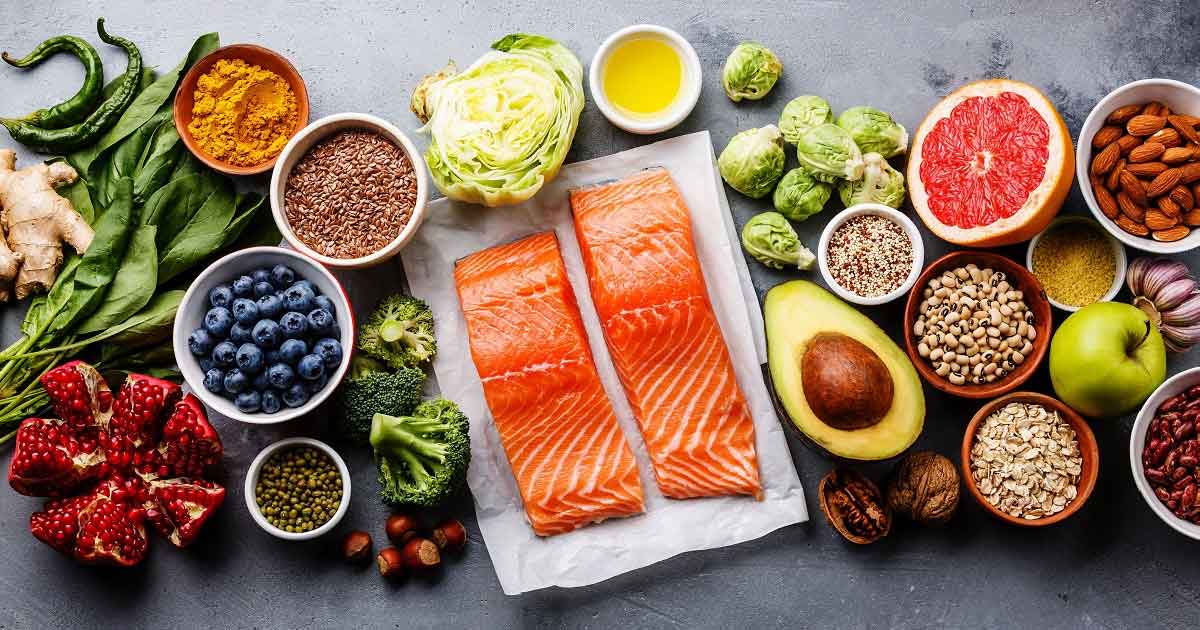
Advice to improve your movement, fitness, and overall health from the world's #1 in orthopedics.
What to Eat (and Not to Eat) to Help Reduce Inflammation
Diet plays a key role in your body’s ability to regulate inflammation. Learn more about the right foods to choose.
Advice to improve your movement, fitness, and overall health from the world's #1 in orthopedics.

“There are two main types of inflammation: acute and chronic,” says Danna Raphael, RD, CDN, a clinical nutritionist at HSS. Acute inflammation happens in response to an attack on the body, whether from a trauma, a virus or bacteria, for example. Think of when you accidentally nick yourself shaving. Afterwards, the area gets red, warm and swollen—otherwise known as inflamed. That’s because after an injury, hormones send signals to the cells to bring oxygen and blood to the area to help it heal.
Chronic inflammation, on the other hand, happens when the body essentially overreacts to a perceived stressor, continually pumping out pro-inflammatory compounds on a low level. These begin to attack healthy joints, blood vessels and tissues throughout your body, which can produce aches and pains.
There is some good news: Research shows that diet can play a key role in whether or not your body produces or fights chronic inflammation. Choosing the right foods is one of the most effective tools you have to keep inflammation in check and help your body feel better.
Here are some tips from Raphael to keep in mind when you’re planning your next shopping list:
Fill up on fish. Fatty fish like salmon, herring and anchovies are rich in omega-3 fatty acids. Since your body can’t manufacturer omega-3s on its own, you have to get them through your diet. Most high-omega-3 fishes are also high in vitamin D, which many people associate with bone health. However, vitamin D has also been found to play an important role in regulating the production of certain molecules that promote inflammation. Get up to about 12 oz of fish a week, or about two healthy servings.
Choose your oils wisely. Vegetable and seed oils like corn, sunflower, safflower, soy and cottonseed, as well as mayonnaise and many salad dressings, are rich sources of omega-6 fatty acids. While you need enough of these for the normal function of all tissues, in excess they can trigger the body’s production of pro-inflammatory compounds. Most Americans already get enough omega-6s, so you don’t need to worry about adding these into your meals. What you’re probably not getting enough of, however, are the previously mentioned omega-3 fatty acids, which are found in olive, canola and flaxseed oils. When cooking, choose olive or canola oil over vegetable oil, and drizzle flaxseed oil over cooked vegetables or use it in a salad. You can also eat whole flaxseed or chia seeds; they’re tasty sprinkled into salads or yogurt.
Pass on the processed foods. These contain many different compounds that have been shown to cause inflammation, so whenever you can, choose whole foods over processed: potatoes over potato chips, seltzer over soda, a square of dark chocolate over a candy bar. Prepare more meals at home than you eat out, and scrutinize food labels – in general, the fewer the ingredients, the better.
Avoid added sugar. You probably already know that sugar is abundant in sweet snacks like cookies and candy, but it’s also hidden in many common foods you may think of as savory, like marinara sauces, ketchup and barbeque sauces. In 2021, food manufacturers will be requied to include added sugars on the label, so you can see what sugars occur naturally in foods (like fructose in fruit or lactose in milk) and what sugars are added during processing. Since processed sugars trigger the release of inflammatory molecules, limit calories from added sugar to less than 10% of your total sugar intake per day.
Published 9/17/2021

